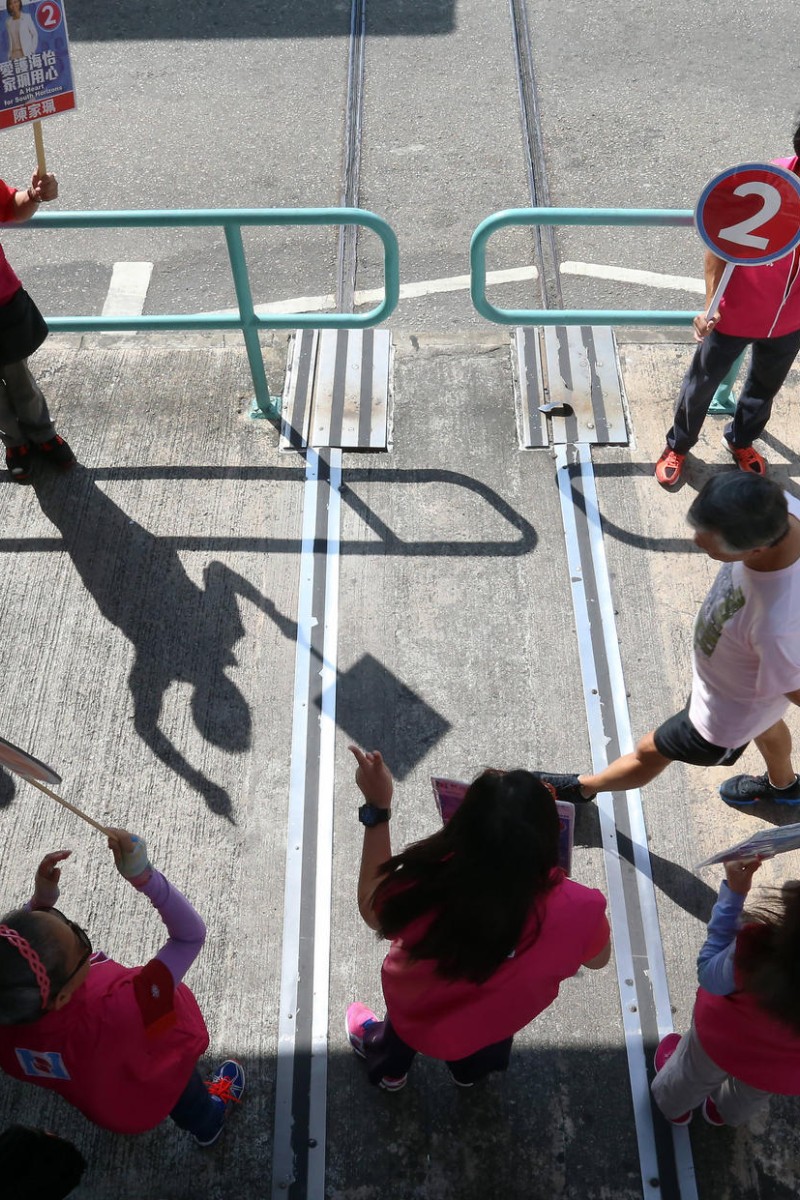
 The district council election results show that people in Hong Kong want something different.
The district council election results show that people in Hong Kong want something different.The district council election result shows the shifting political landscape in Hong Kong. People say it is an indicator of the upcoming Legislative Council election, but it also indicates some significant changes in local politics.
First, there was an unprecedented voter turnout of 47 per cent. This is mainly because of first-time voters, so politicians, especially those from traditional pro-government establishments, will need to change their campaigns to appeal to the young generation.
We have a different voter mentality. We are not interested in how the candidate has negotiated for an increase in Old Age Allowance or better recreational facilities. We do not necessarily need concrete achievements. We value candidates’ political ideologies and inclinations – where they stand on the political spectrum, how they view sensitive topics like parallel traders, or universal suffrage, or even how closely aligned they are with the government.
This is part of the reason why several “Umbrella Soldiers” defeated heavyweights such as Albert Ho Chun-yan or Christopher Chung Shu-kun. Rather than voting for those who have long held the district seats, we would rather choose unfamiliar faces with a clear political stance. Even if Umbrella Soldiers entered the race with less experience or political accomplishments, they embody our political standpoint. They represent a third, fresh voice in the debate that has long been monopolised by democrats and government-affiliated parties.
To win our votes, politicians can no longer rely on strategies of providing welfare and maintaining the status quo. We are tired of the status quo! We want to hear grand plans for change, even if it sounds as implausible as Occupy Central.
Invigorated by the success of seven Umbrella Soldiers, we may gradually see more independent candidates running against political parties. The democratic parties have been reluctant, or perhaps lukewarm, to cultivate a new brand of leaders. Household names have remained generally unchanged and we have yet to hear about a rising new star to replace the current legislators in the future. People have always said that without the connections and funding from an established party, independent candidates have little chances of winning, and this has only discouraged aspiring politicians from joining the field.
We could also have younger candidates as well. A few years ago, challenging the lower age limit for candidates might have been unnecessary, but when Joshua Wong Chi-fung filed for a judicial review to challenge the age limit, it wasn’t much of a surprise. Driven by a desire to change the political deadlock in Hong Kong, there may be more young, ambitious candidates who refuse to identify with traditional parties.
However, by no means am I implying that local politics would actually get better. Even with more democratic “moderates” joining the scene, anti-Occupy Central groups remain as pro-government strongholds. DAB still holds a large majority of seats despite losing 19 places on Sunday. We might have a bigger split in our political scene, with younger progressives calling for changes that they have yet to fully explain, while their more conservative counterparts remain steadfast in maintaining “peace” and avoid large scale protests. The new politics may include broader and more diverse views, but they will not be short of quarrels and rhetoric of their own.
However, compared to the political apathy and disenfranchisement we had before, the changes we are experiencing today are certainly an improvement – one that has been earned by the sweat and tears of Occupy Central protesters.
We could have even younger candidates. A few years ago, challenging the lower age limit for candidates might have been unnecessary. But when Joshua Wong Chi-fung filed for a judicial review to challenge the age limit, it wasn't much of a surprise. There are probably more young, ambitious candidates who refuse to identify with traditional parties who seek to change the political deadlock in Hong Kong.
But even with more democratic "moderates" joining the scene, anti-Occupy Central groups remain as pro-government strongholds.
The DAB still holds a majority despite winning fewer seats in the district council elections. The new political landscape may include broader and more diverse views, but it won't be short of quarrels and rhetoric.
But compared to the political apathy and disenfranchisement we had before, the changes we see today are certainly an improvement - one that has been earned by the sweat and tears of Occupy Central protesters.